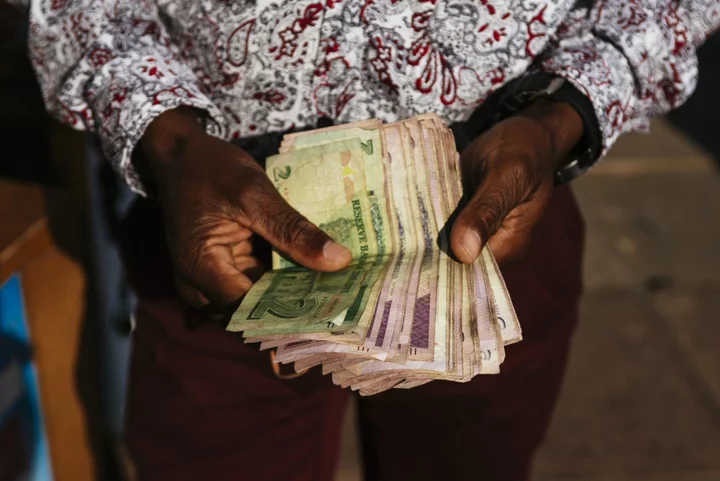Zimbabwe introduced a new levy on lithium and a wealth tax to fund an almost 14-fold increase in spending aimed at shoring up the economy.
An annual budget presented by Finance Minister Mthuli Ncube projects expenditure will rise to 58.2 trillion Zimbabwe dollars ($10 billion) in 2024, from Z$4.3 trillion this year. It will mostly be funded by tax revenue that’s forecast to more than double to Z$51.2 trillion.
The spending increase comes after Zimbabwe’s dollar lost 89% of its value against the US currency this year, and annual inflation topped 176% in June before the authorities revised the way price-growth is measured. Prices roses 21.6% year-on-year in November. Most transactions in the country take place in US dollars.
The southern African nation will impose a 1% levy on the gross proceeds of lithium as well as black granite and other stones used in construction, Ncube said on Thursday. A 1% wealth tax will target owners of residential properties worth a minimum of $100,000, he said.
“Resources derived from the levy will be ring-fenced toward urban infrastructure development, in particular roads, water, sewers and community health centers,” Ncube told lawmakers in parliament at Mount Hampden, 23 kilometers (14 miles) north of the capital, Harare.
Zimbabwe, which has Africa’s largest lithium reserves and other minerals used to make batteries for electric vehicles, has repeatedly targeted its mining industry to boost revenue. The country earned $209 million from lithium exports in the nine months through September, Mines Ministry data show.
Read More: Raw Lithium Exports Banned in Zimbabwe as Demand and Prices Soar
Ncube said lithium miners will be required to submit plans by no later than March 31 for processing the mineral to improve its value — so-called beneficiation.
“No licenses shall be granted to a prospective lithium company without approval of a beneficiation plan,” he said.
Resource nationalism is across the world as developing countries seek to benefit more from higher commodity prices, while addressing historic inequities in the wealth flows from mining. In Chile — the No. 2 lithium producer — President Gabriel Boric is looking for a bigger share of the mining windfall to fund schools and hospitals. Mexican President Andrés Manuel López Obrador declared lithium too strategic for private investors.
Read More: One of the World’s Lithium Leaders Looks Like a Shakier Source
Lithium miners in Zimbabwe include Chengxin Lithium Group Co., Sinomine Resource Group Co. and Zhejiang Huayou Cobalt Ltd.
Under the government’s proposal, companies that fail to undertake value-addition processing will be liable for an export tax, according to Ncube. He provided no further details on the tax threshold.
Zimbabwe’s economy is expected to expand 3.5% next year, compared with a revised forecast of 5.5% in 2023, because of a slump in demand for commodities and El Niño-induced weather conditions that may curb agricultural output, the minister said.
(Updates with currency plunge, inflation surge in third paragraph)

